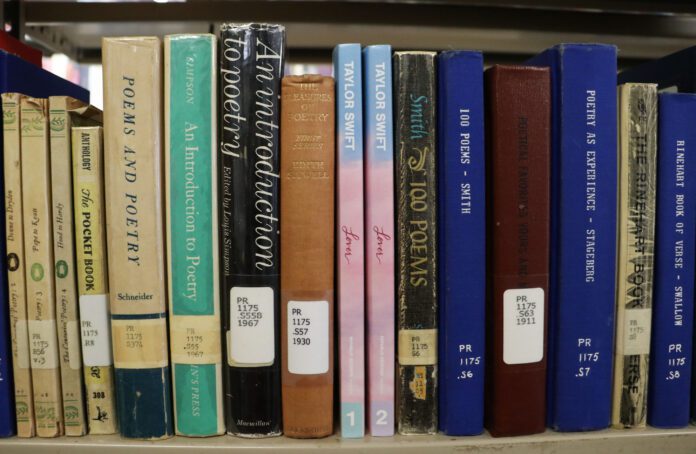Love her or hate her, everyone knows who Taylor Swift is – the most famous pop star of the twenty-first century. Right now, she is at the highest point of her career, and her accomplishments are largely due to the talent she has at telling stories, rooted in the fact that she writes poetry through her songs.
Swift certainly thinks she is a poet even if you think otherwise, for she dares to place herself in the company of the Romantic poets in her song “the lakes,” the deluxe track off of “folklore.” Unless you realize how Swift is a poet, you will not understand how her music impacts millions of people all over the world. Her music is not prose because it goes beyond the confines of prose. Where prose does not care about sound down to the utmost syllable, poetry and music do.
There is no better example to prove that Swift is a poet than with her song “the lakes,” for that is how she raised her status as more than a mere singer-songwriter. “The lakes” is titled after the Lake District in England, where Romantic English poets such as William Wordsworth and Samuel Taylor Coleridge lived. The very first line of the song indicates Swift is aware of what company she finds herself in, for she plays a pun with the word “romantic” knowing well of its double entendre of both “romance” and the “Romantic era.”
Swift, surrounded by “hunters with cell phones,” wants to escape to the Lake District because that is “where all the poets went to die.” By being where the great poets of the past went before, she knows that she is now what they once were. She herself wants to escape because she does not “belong.” And she knows that she must not escape alone; she must go with her “muse.” By using the word “muse,” Swift puts herself in that great tradition of poetry of the poetic “muse” – a source of inspiration dating back to Homer. Together at the Lakes, Swift and her muse are free of people telling her “what are [her] words worth.” Using “words worth” as a pun on the name of William Wordsworth, she further establishes that she is now in the company of the poets who once lived on the Lakes.
But why would Swift want to associate with these great Romantic poets unless she herself is one of them? It is not enough that she tells stories with her songs. Her stories have to be good; they have to make people feel, for Romanticism placed emphasis on emotions. But even good, emotional stories are not enough to be a Romantic. She also must care about form, about rhyme, and about rhythm, and at the same time, not be constrained by these three factors. Yet with “the lakes,” Swift fulfills all of the criteria of a Romantic poet.
While not consistent in the syllable count of each line, Swift writes “the lakes” primarily in iambic, which is a meter that consists of one unstressed syllable followed by one stressed syllable. If you pay close attention, you’ll notice that the iambic pattern doesn’t break unless certain words need to be emphasized. For example, the line “in heart-stopping waves of hurt” is mostly trochaic (stressed syllable followed by an unstressed syllable). The trochaic pattern in this line emphasizes the “waves of hurt” as waves crash on the shore before they recede.
Thus, whether the meter remains in an iamb or changes, you as a listener know what you are supposed to pay attention to. With prominent use of iambs, Swift matches the meter that the Romantic poets use most. Furthermore, as Swift makes use of rhyme alongside meter (“clones” and “phones;” “die” and “cry”), she shows she has care to please the ear – and that is the care of a poet.
Thus, with “the lakes,” Swift proves herself worthy amongst the Romantic poets because she writes just like them. Her songs may be modern, but that does not mean she will discard traditional form. Instead, she uses tradition to create something transcendent in her songs that connect with listeners, and that is why listeners care deeply about Swift’s songs. To say that Swift is not a poet is erroneous in thinking. She thinks about each and every sound her words make as seen in “the lakes” and in her other songs.

